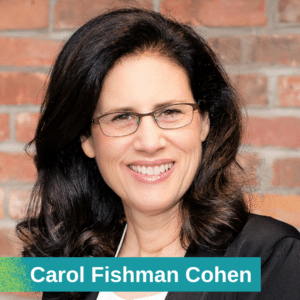“We don’t respect personal time?”
“What?”
That’s what my co-founder, Amy, and I asked during our off-site. At the time, we were reviewing what the S Curve Insight Tool had to say about our ecosystem at Disruption Advisors.
We had purposely not been the ones debriefing with the team; instead, we had asked two senior members of our team to do it, so that we could participate in the process –– and, frankly, walk through the experience that our clients have.
But even when you live and breathe high-performing teams, building them and nurturing them, it’s still discombobulating when the person who is not contributing to the high performance is you.
So here’s what happened.
But how is that possible? That was Amy’s question. There are two weeks a year when we are closed, and our folks can take vacation time when they want…
My take was slightly different, but we still settled in the same place. I worked on Wall Street, and for many years, I worked seven days a week, and pulled all-nighters, not uncommonly. I was on call continuously, and I canceled vacations at the last minute.
We don’t ask people to work on weekends, we don’t do fire drills, and we don’t send emails outside of business hours—usually. So, we were a little defensive.
But then we stopped — and we listened.
It turns out that, yes, we have access to vacation time, but sometimes, sometimes, we ask people to do things in a slightly unreasonable amount of time. Like with the podcast, where we were in a transition phase and hadn’t ironed out a reasonable process, one of our team members was staying up until 3 in the morning to make sure we posted on time.
We didn’t know that BECAUSE she was just pitching in and making sure it got done. Go, Stephanie.
Consequently, though, respect for personal time came up at our off-site.
So, what are the lessons for you, me, and our teams—whether at work or with our families?
- If you want the people around you to take on challenging tasks – taking a hard look at what they are doing to hinder the growth of their team, for example – make sure you are doing what you are telling other people to do. You can’t avoid the work of your own introspection.
- Get defensive, if you need to, for a minute. Apparently, our team appreciated the unvarnished emotion.
- But then get curious. What’s actually happening—cause and effect? What hidden systems are in place that created this situation? No, we don’t send emails or texts on the weekend (thanks to delayed sending), but that doesn’t mean we’re off the hook everywhere else.
- Once you’ve identified the problem, fix it—posthaste—so that people feel heard and seen. Then, when you re-administer the S Curve Insight Tool in six months, you can genuinely say, “Look, team, we changed.”
On Disrupt Yourself, we’ve just released an episode about one woman’s journey experiencing disruption that led her to opt out of the workforce and then re-enter 11 years later. Today, she’s the CEO of her own company – a company that is now helping others make the same transition she did. That’s episode 362 with Carol Fishman Cohen.
Before that, I had a lovely conversation with Ancestry founder Paul Allen, on his new endeavor, Soar, and how it’s using artificial intelligence with the goal of 10x-ing our humanity.
And coming up, we have a conversation with Peter Sims, the founder of Black Sheep (BLK SHP), a creative company that’s taken the ethos of Ed Catmull of Pixar fame and brought it to places like Google. Peter’s early endeavors include organizing Giving Tuesday, a global day of donating to everything from your local public radio station to your favorite charity. Tune in this Friday to hear more about Peter’s journey.
As always, thank you for being here!
My best,
Whitney
P.S. Are you looking to both accelerate your growth, and invest in the people you care about? Our Smart Growth Certification program gives you the tools to start meaningful conversations around growth with your employees, teams, coaching clients –– and yes, even your family. Certified Smart Growth Advisors also have exclusive access to the S Curve Insight Tool––a diagnostic that provides powerful insights into an individual’s experience of growth.
Register for an upcoming webinar and learn more about how the Smart Growth Certification can help you and your business grow!




